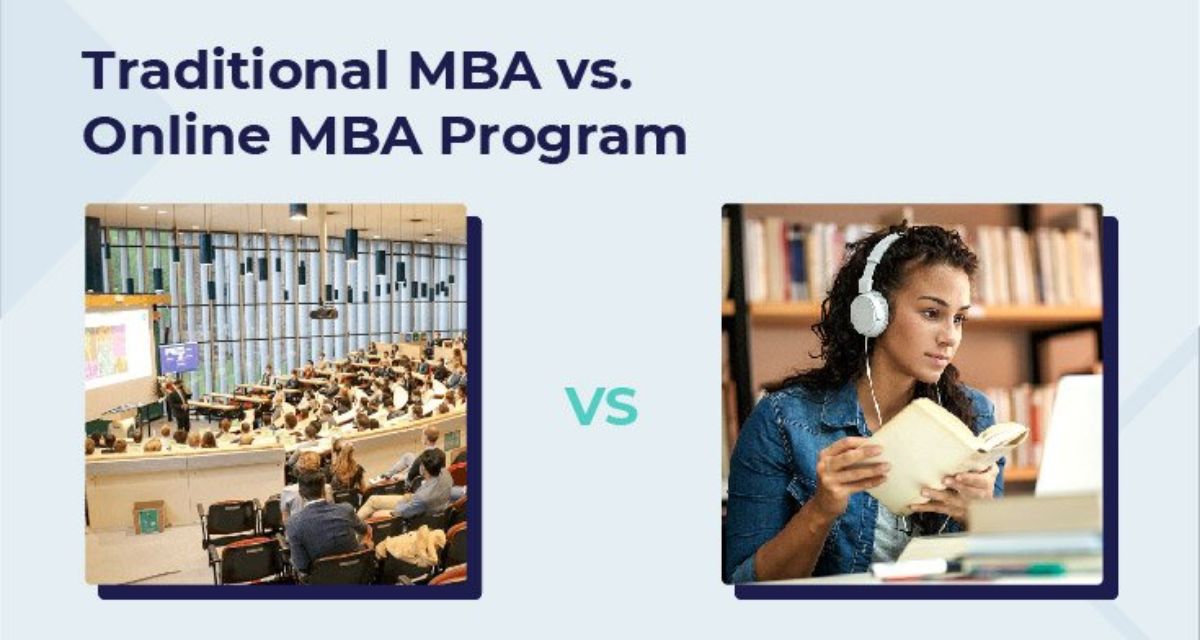Embarking on a Master of Business Administration (MBA) journey requires careful consideration of the learning format. Both online and traditional MBA programs offer unique advantages and drawbacks. Here’s a comprehensive comparison of the two to help you make an informed decision:
Online MBA:
Pros:
- Flexibility:
- Pro: Online MBAs provide unparalleled flexibility, allowing students to study at their own pace and schedule. This flexibility is particularly beneficial for working professionals balancing career commitments.
- Cost Savings:
- Pro: Online programs often have lower tuition fees and eliminate commuting and housing costs, making them a more cost-effective option for many students.
- Global Access:
- Pro: Online programs break down geographical barriers, enabling students to participate from anywhere in the world. This global accessibility fosters diverse perspectives in virtual classrooms.
- Work-Life Balance:
- Pro: Online MBA programs accommodate individuals with family responsibilities or other commitments, promoting a better work-life balance.
- Technology Integration:
- Pro: Online programs leverage advanced technologies, incorporating interactive multimedia, virtual simulations, and collaborative online tools for an enhanced learning experience.
Cons:
- Limited Networking Opportunities:
- Con: Online programs may have fewer opportunities for in-person networking, which can be crucial for building professional connections.
- Potential for Distractions:
- Con: Studying in a non-traditional environment may pose challenges with distractions, requiring disciplined time management.
- Perceived Credibility:
- Con: Despite the growing acceptance of online education, some employers may still perceive traditional programs as more prestigious.
Traditional MBA:
Pros:
- Networking Opportunities:
- Pro: Traditional MBA programs offer ample opportunities for face-to-face networking, with students building relationships with peers, faculty, and industry professionals.
- In-Person Interaction:
- Pro: Classroom discussions and in-person interactions facilitate immediate feedback and a dynamic learning environment.
- Established Reputation:
- Pro: Traditional MBA programs often have established reputations, and the prestige associated with attending a well-known business school can enhance your professional standing.
- Structured Schedule:
- Pro: A fixed schedule provides a structured learning environment, suitable for those who thrive on routine.
Cons:
- Limited Flexibility:
- Con: Traditional MBA programs typically follow a fixed schedule, making it challenging for working professionals to balance academic and career commitments.
- Higher Costs:
- Con: Tuition fees for traditional programs are often higher, and the associated costs, such as housing and commuting, can add up significantly.
- Geographical Constraints:
- Con: Attending a traditional program may require relocating, limiting accessibility for individuals who cannot move to the program’s location.
- Technological Lag:
- Con: Traditional programs might lag in incorporating cutting-edge technologies, limiting exposure to the latest advancements in online learning.
Ultimately, the choice between an online and traditional MBA depends on individual preferences, career goals, and lifestyle. Consider factors such as your preferred learning style, the importance of networking, and the flexibility needed to determine which format aligns best with your aspirations.
